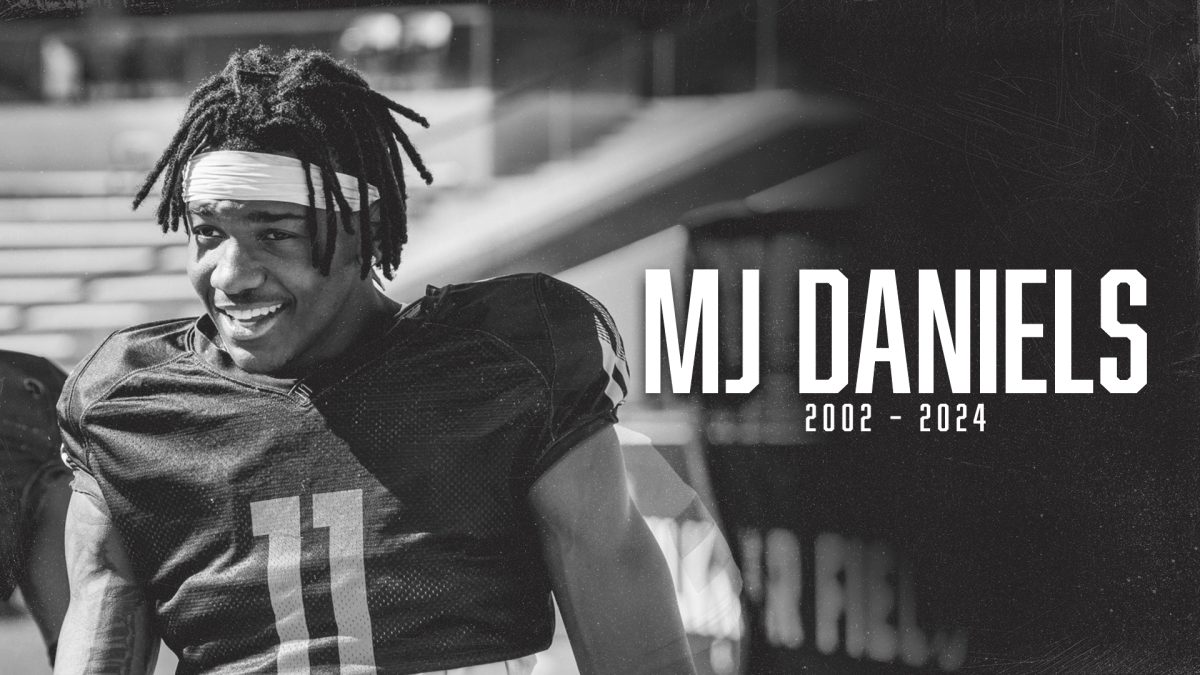It may be unsurprising to hear about the importance of keeping a strong online presence in today’s digital world.
Recruiting platform Jobvite recently released its annual Social Recruiting Survey, with results that may be disconcerting to those in favor of the infamous “drunk tweet” or prefer to live completely off-grid.
More and more of today’s recruiters turn to the Internet to shop for new talent and google potential employees. In fact, social networking now contributes to 73 percent of new hires.
“Everything is digital,” said Chelsea Thomas, a 2013 USM graduate and marketing strategist. “If Twitter scares you, get over it. Learn to write. Learn how to put your personality on the Internet and just be you. Your employer will check you out.”
What Thomas said holds truth, to various degrees. What students decide to write or put out could land – or lose – a shot at a great job straight out the gates of graduation.
Over 92 percent of employers reported using social media to search for, contact, keep tabs on and vet potential candidates prior to interviews.
About 55 percent of recruiters reported reconsidering a candidate after reviewing online activity, with 61 percent of those reconsiderations being negative. Some have found the bar for what can leave people unemployed is surprisingly low – even so much as a retweet can leave a negative impression on recruiters.
“I got blacklisted by the HR department at a private Christian college in North Carolina for retweeting a video on Twitter,” said a 2014 USM graduate, who wishes to remain anonymous.
“And I still haven’t found another job. They said I used ‘rampant racial slurs’ on social media, but the video was the only thing I could find that remotely referred to that.”
Recruiters reported profanity, spelling/grammar mistakes, drug references, sexual posts, alcohol and guns as reasons behind negative reconsiderations.
So, if a student is one that “tweets first, asks questions later,” 2014 graduate and current producer at WLBT 3 and WDBD Fox 40 Kristy Shelley said to just keep it private.
“The viewers really like to know that you are a real person and do normal people things, like run 5Ks or take selfies,” Shelley said. “However, most reporters and anchors and meteorologists usually have a separate Twitter or Facebook so they can separate some aspects of their personal life from their professional life.”
Shelley kept two Twitter accounts: one personal and one professional. When applying for jobs, Shelley only promoted her professional page, providing the URL to make it easy for her employers to screen her online activity.
While out job-proofing one’s posts, a person should take time to polish his or her halo: volunteering and charitable donations served as great resumé boosters and left 65 percent of recruiters with a positive reconsideration of a candidate.
But what if someone is trying to find a job (or hopes to have a job find him or her)?
LinkedIn profiles account for nearly 79 percent of the 73 percent hired based on social media platforms.
“My experience in iOS draws recruiters to my profiles,” said Caleb Davis, a senior computer science major. “I’ve gotten quite a few job offers on LinkedIn and GitHUb based off my online presence.”
Students also should not forget to follow companies and businesses they like. LinkedIn offers all the information one needs to know about a company – its size, its origins, its current state of growth and even its
key players.
“LinkedIn makes it easy to keep up with your network, to scope out the recruiter and her background so you have something to talk about on a human level during the interview,” Thomas said.
Thomas now coaches the principles of online presence and personal branding to many small businesses and college students at easyEmerge, a New Orleans-based marketing software company, as well as on her own under the name Janke Communications.
“I realized a year before I graduated that I did not want to be a statistic. I did not want to be the student who went a year and a half after graduation with no job or job offers,” Thomas said.
She began laying the foundation to impress her interviewers: networking, conferences, workshops, building an online portfolio and beefing up her resumé.
But graduation rolled around, and Thomas reluctantly walked across the stage with no job offers on the table.
“So I became more aggressive with interviews, even so much as to ask the CEO (of my current company) at the conclusion of the interview ‘what’s keeping you from hiring me right now,’” Thomas said.
A month later, the CEO gave Thomas a personal call with an interesting offer.
“They thought my skill set surpassed their requirements for the job opening I interviewed for, so after six hours of interviewing, they created a new position in their company just for me,” Thomas said.
During the interview, her employer noted it was her writing skills that got her the position, but Thomas emphasizes that her social media presence showcased those skills.
And one should not be afraid to get a little design-savvy.
“My personal website has got me more compliments from employers than anything else,” Thomas said. “Now I design websites for graduating seniors and small businesses.”
Students should brainstorm what makes them unique.
“Are you a writer? You could provide samples of your writing. Architect? Provide samples of your blueprints. Teacher? Provide sample lesson plans. Whatever you can think of that a recruiter would like to see, put it out there,” Thomas said.
The digital world is ever-expanding and adding new pressures for job seekers. Jobvite reports 69 percent of recruiters said the competition will grow even more fierce by 2015.



























